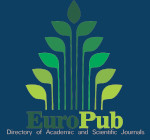Concepções de álgebra na educação matemática
DOI:
https://doi.org/10.17648/diversitas-journal-v6i1-1597Abstract
ABSTRACT: This article aims to articulate the elementary algebraic knowledge developed by teachers and their conceptual profiles, according to Fiorentini, Miorim and Miguel (1993), Usiskin (1995), Lins and Gimenez (1997), Figueiredo (1997) and Lee (2001). We started from a bibliographic study to support the theoretical framework and the application of a questionnaire in order to identify the teachers' conceptions about teaching elementary algebra according to Lee. The natural articulation between concrete and everyday situations for students to visualize the application algebra, in different contexts, is fundamental for the construction of algebraic reasoning. With regard to the act of teaching algebra, it is necessary to bear in mind the object of study and move between the different semiotic records related to it, as pointed out by Duval (2009). As well as expanding the way of approaching algebra from several possible conceptions.
KEYWORDS: Algebraic education, Conceptions, Meanings.
Metrics
References
BOOTH, Lesley R. Dificuldade das crianças que se iniciam em álgebra. In: COXFORD, Arthur. F.; SHULTE, Albert. P. (Orgs). As ideias da álgebra. Trad. Hygino H. Domingues. 6. Reimp. São Paulo: Atual, 2004.
DANYLUK, Ocsana Sônia. Alfabetização matemática: as primeiras manifestações da escrita infantil.5. ed. Passo Fundo: Ed. Universidade de Passo Fundo, 2015.
DUVAL, R. Semiósis e pensamento humano: registro semiótico e aprendizagens intelectuais. São Paulo: Editora da Livraria da Física, 2009.
FIORENTINI, D.; MIORIM, M. Â.; MIGUEL, A. Contribuição para um Repensar... a Educação Algébrica Elementar. Pro-Posições, Campinas -SP, 4 (1), 78-91. 1993.
GREER, Brian. Algebra for all?. The Montana mathematics enthusiast, ISSN 1551-3440, vol. 5, n.º 2,3,2008, p. 423-428.
LEE, Lesley. Early –but which algebra? The future of the teaching and learning of algebra.In: ICMI study conference, 12, 2001. Melbourne (Australia). Proceedings... Melbourne: ICM, 2001. v. 2, p. 392-300.
LIEURY, Alain. Memória e aproveitamento escolar. São Paulo: Edições Loyola, 2001.
LINS, Romulo Campos; GIMENEZ, Joaquim. Perspectivas em aritmética e álgebra para o século XXI. Campinas, SP: Papirus, 1997.
MARTINS, Lourival Pereira; DIAS, Marlene Alves. Os sete aspectos considerados nas tarefas de passagem da Aritmética para a Álgebra. Revista de Educação em Ciências e Matemática, v.13 (28) Jul-Dez 2017. p. 90-103.
MELO, José Eronildo de. Educação algébrica: significados e concepções dos professores de matemática de Palmeira dos Índios –AL (2017). (Dissertação de mestrado) Assunção, Paraguai: Universidade de Desarrollo Sustentable, 2017.
POLYA, George. A arte de resolver problemas. Trad. Heitor Lisboa de Araújo. Rio de Janeiro: Interciência, 2006.
PONTE, João Pedro da; BRANCO, Neusa; MATOS, Ana. Álgebra no ensino básico. Ministério da educação, Portugal: DGIDC, 2009.
SADOVSKY, Patricia. O ensino de matemática hoje: enfoques, sentidos e desafios. Trad.: Antonio de Padua Danesi. São Paulo: Ática, 2007.
SAÉNZ-LUDLOW, Adalira. Juegos de interpretación en el aula: construcción evolutiva de significados matemáticos. In: DUVAL, Raymond; SAÉNZ-LUDLOW, Adalira. Comprensión y aprendizaje en matemáticas: perspectivas semióticas selecionadas. Bogotá: Editorial Universidad Distrital Francisco José de Caldas, 2016.
SEVERINO, Antonio Joaquim. Metodologia do trabalho científico. 23. Ed. Ver. E atual. São Paulo: Cortez, 2007.
SCARLASSARI, Nathalia Tornisiello. Um estudo de dificuldades ao aprender álgebra em situações diferenciadas de ensino em alunos da 6ª série do ensino fundamental. Dissertação de mestrado. Campinas, SP: [s.n.], 2007.
USISKIN, Zalman. Concepções sobre a álgebra da escolar média e utilizações das variáveis. In: In: COXFORD, Arthur. F.; SHULTE, Albert. P. (Orgs). As ideias da álgebra. 6. Reimp. Trad. Hygino H. Domingues. São Paulo: Atual, 2004.
Downloads
Published
How to Cite
Issue
Section
License
Copyright (c) 2021 José Eronildo de Melo, Leopoldo Oscar Briones Salazar, Claudiene Cordeiro Leandro Bispo, Maria Sizino de Lira Santos, José Saraiva dos Santos

This work is licensed under a Creative Commons Attribution 4.0 International License.
The Diversitas Journal expresses that the articles are the sole responsibility of the Authors, who are familiar with Brazilian and international legislation.
Articles are peer-reviewed and care should be taken to warn of the possible incidence of plagiarism. However, plagiarism is an indisputable action by the authors.
The violation of copyright is a crime, provided for in article 184 of the Brazilian Penal Code: “Art. 184 Violating copyright and related rights: Penalty - detention, from 3 (three) months to 1 (one) year, or fine. § 1 If the violation consists of total or partial reproduction, for the purpose of direct or indirect profit, by any means or process, of intellectual work, interpretation, performance or phonogram, without the express authorization of the author, the performer, the producer , as the case may be, or whoever represents them: Penalty - imprisonment, from 2 (two) to 4 (four) years, and a fine. ”















.png)




